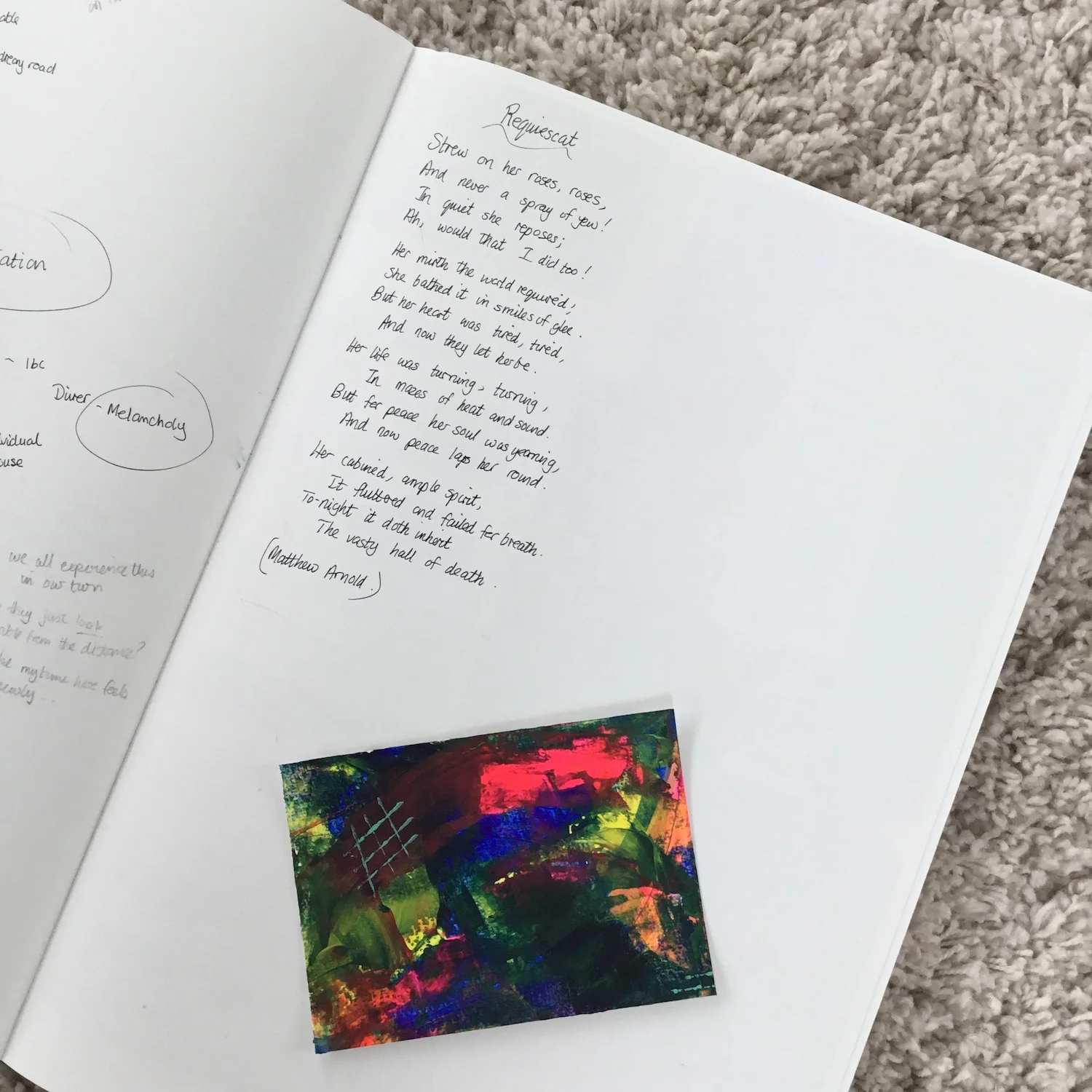Three women. Three lives.
Three books about being a woman in search of a poetic life – in the 1930s, 1970s, and 2000s.
Because I learnt so much from these women, I wanted to share them with you.
Looking at their books today, I notice how they each refuse to draw a line between their poetic life and their prosaic life, be that keeping house, looking after people and dogs, or the day job. Instead, the poetic and the prosaic seem to respect, feed, and even comfort, each other.
Poetic and prosaic can be in a rich, dynamic balance, even when equal priorities may be impossible on a daily basis. But only if we love and respect both parts of our lives, refuse to use one as an excuse to avoid the other, actively seek out ways to enable the mutual support they can offer.
This happened one morning recently. After breakfast and my journal, I did the ‘clearing up’ – stripped a bed and put the washing on, loaded the dish washer and set it off, wiped the surfaces, put things away, fed next door’s cats, brought the wheelie bins back from the roadside. It was no more than 20 minutes of prosaic action, complemented by a gentle blast of cool Scottish wind and drizzle. Afterwards I was refreshed and ready for the poetic action: for writing and painting and thinking.
The poetic and the prosaic dimensions of our lives do not have to be in conflict.
in my hallway - drying sheets and testing exhibition layouts
It’s happened when I’ve set aside blocks of days for studio time to compensate for time lost in days spent in town or at the dentists. I stock up on ready made dinners, fruit and cheese to minimize the need to leave the house. I relish the delight of time ahead to spend with the poetic.
I paint in my kitchen.
It’s happened at deeply sad times when a poem found and copied out has enabled a brief melting in the frozen days of grief.
It’s your life. it’s unique and it’s precious. That dynamic and mutually enriching balancing of poetic and prosaic is yours to experiment with. What might you try?




